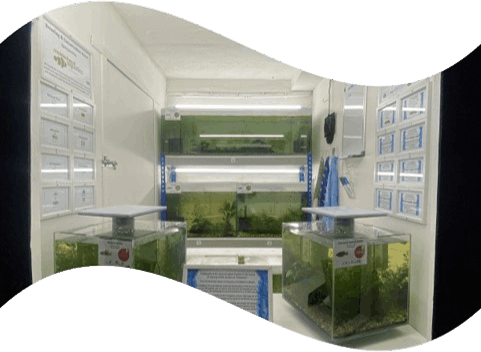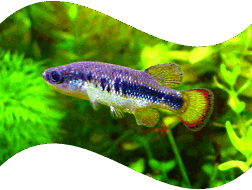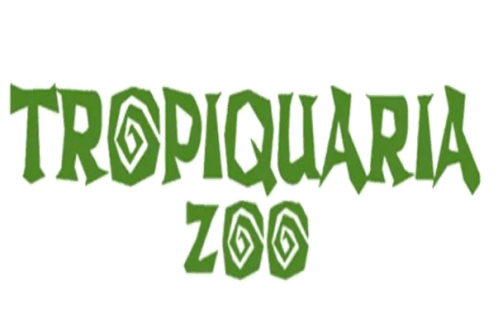
Leading the way in conservation
Tropiquaria has the second largest breeding programme of Mexican Goodeids in the world. There are over 40 species of these small livebearing fish, and the vast majority of them are in severe danger of becoming extinct. We have nearly 80 breeding tanks of various sizes, helping to keep these species alive.
In recent years there has been a significant reduction in the range and size of Goodeid populations in this region, mainly due to anthropogenic disturbances, such as pollution, eutrophication, habitat modification and desiccation; recent estimates put habitat loss at 80% compared to historic ranges. The low economic importance of Goodeid fish to Mexican fisheries and industry has led to this family being largely ignored by conservation efforts, but their small size and the dedication of a small number of aquaria hobbyists has led to a recent increase in the amount of research dedicated to the family. These investigations have highlighted the implications for conservation efforts concerning other global freshwater ichthyofauna.

What is a Goodeid?
Goodeids are fish endemic to Mexico and some areas of the United States. This family contains about 40 species within 18 genera. The family is named after ichthyologist George Brown Goode.
Goodeid fish have internal fertilisation, with males positioning themselves with a flexible part of the front anal fin, separated by a notch, which makes up the andropodium. Embryos hatch out of the egg within the ovarian follicle, and possess trophotaeniae, ribbon-like structures that emerge from the cloaca in front of the anal fin, on the ventral surface of the juvenile. These allow the absorption of nutrients within the ovary (matrotrophy), and are shed by juveniles shortly after birth

Goodeid Working Group
Tropiquaria is a member of the Goodeid Working Group
The Goodeid Working Group is a non-profitable international Working Group managed and run on a 100% voluntary basis. It was established on 1st May, 2009 in Stoholm, Denmark in response to the critical environmental issues facing the majority of wild Goodeid species/populations, plus the poorly-documented ‘disappearance’ of many captive collections.
The primary goal of the Goodeid Working Group is to promote collaboration between like-minded hobbyists, universities, public aquaria, zoos, museums and conservation projects in order to maintain aquarium populations of Goodeids while assisting in preservation of remaining natural habitats.
Our Aquarists have regularly attended and given lectures at GWG Conferences around Europe and Mexico.
For more details click here

How can you help!
Tropiquaria does not recieve any goverment funding for its conservation projects and rely exclusively on admission fees to the park, and donations from private people and small businesses.
We are currently trying to raise £5000 towards the next stage of our program so that we may increase the number of species we can breed. We already breed several species that are sadly extinct in the wild, and we need to do more.
If you wish to help us, please donate via Paypal, Facebook, or contact our Head Aquarist at shaun.stevens@tropiquaria.co.uk
Tropiquaria - Goodeid Species List - Currently updating
Our Current Sponsors & Donors
Business
Aquarian - UK
Interpet / Blagdon - UK
Maidenhead Aquatics - UK
Organisations & Societies
Association France Vivipares - France
BIAZA - UK
British Livebearer Association - UK
Goodeid Working Group - UK, EU & USA
Mid Sussex Aquarist Society - UK
Individuals
Louise Ash - UK
Adam Barker - UK
Robert Cave - UK
Eve Dawes - UK
Bill Galbally - UK
Amy Giess -UK
Shawn Goodchild - USA
Jess Grove - UK
Pat Hartman - USA
Per Hasselgreen - Norway
Michael Kock - Aus
Steven Oliver - UK
Kevin Plazak - USA
Jonathon Sanford - UK
Stevens Family (Casey, Daniel, Stewart, Josh) - UK
We thank you all.
